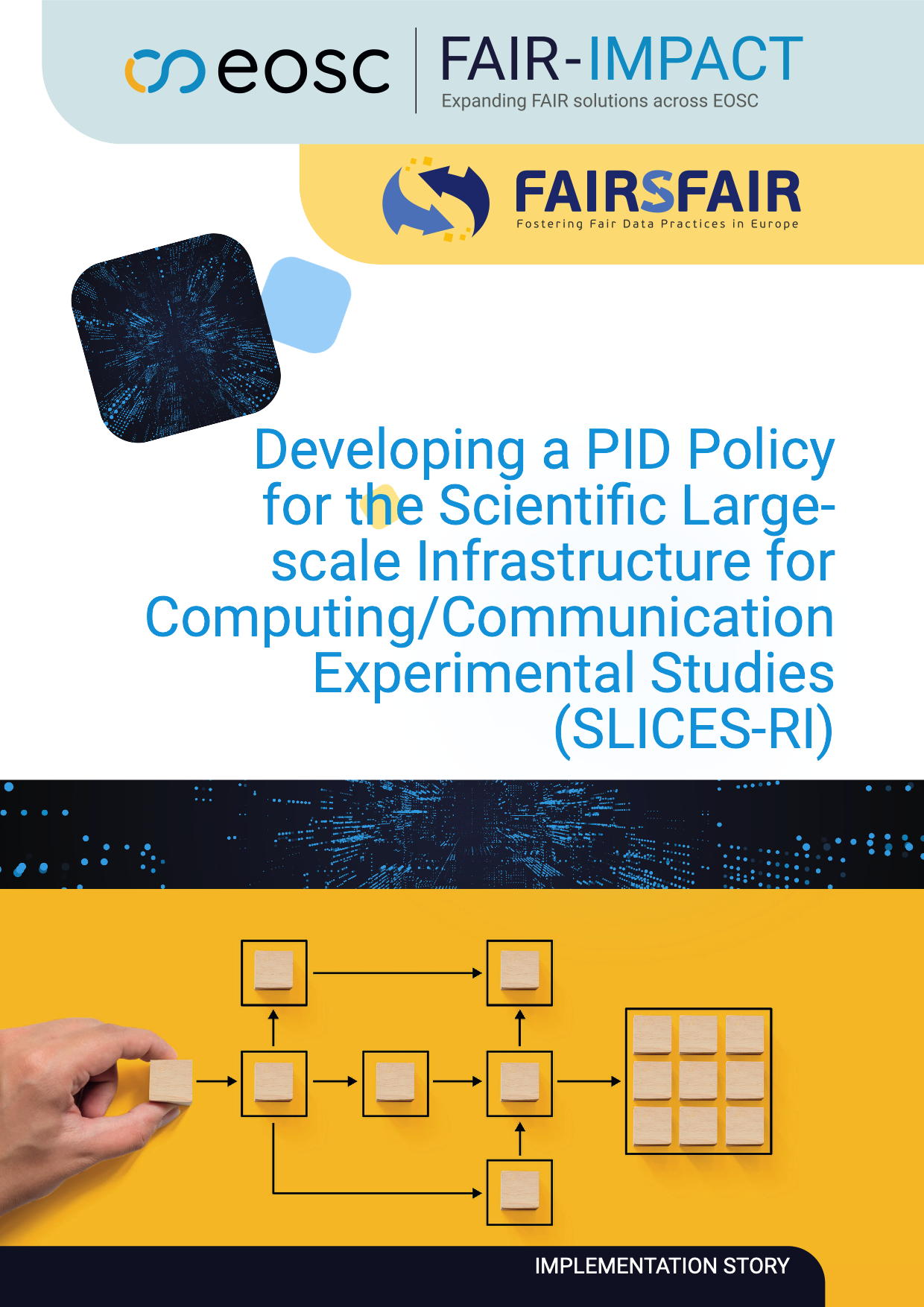Developing a PID Policy for the Scientific Largescale Infrastructure for Computing/Communication Experimental Studies (SLICES-RI)
The persistent identification of research outputs is part of good research data management practice and is central to the FAIR Principles and the European Open Science Cloud (EOSC) vision. Several types of persistent identifiers (PIDs) are currently used to identify data (and other kinds of research outputs) but also different actors involved in the creation of outputs and the organisations that employ them or fund their work. Fostering harmonisation of different persistent identifiers, necessitates the definition and implementation of appropriate PID policies. FAIR-IMPACT’s Creating EOSC-compliant Persistent Identifier (PID) policies support action aimed to help successful applicants complete self-assessments concerning their PID policy readiness through the use of FAIRCORE4EOSC’s Compliance Assessment Toolkit (CAT) service, which strives to encode, record, and query compliance with the EOSC PID policy.
The support action did not focus on any specific PID type but rather provided general best practice guidelines on the creation and assessment of PID policies. This FAIR Implementation Story outlines the experience of SLICES-RI with their self-assessment. SLICES is a flexible platform designed to support large-scale, experimental research focused on networking protocols, radio technologies, services, data collection, parallel and distributed computing and in particular cloud and edge-based computing architectures and services. The SLICES-RI consortium gathers partners from 16 European countries.
Author:
Panayiotis Andreou, UCLan Cyprus/SLICES-RI
Editors:
- Lassi Lager, CSC and FAIR-IMPACT
- Rene van Horik, DANS and FAIR-IMPACT
